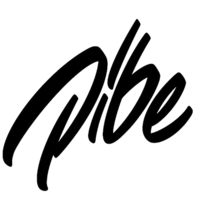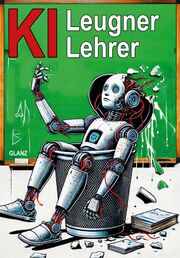

Picasso, Pablo

Einleitung
Pablo Picasso, ein spanischer Maler und Bildhauer, gehört zu den prägenden Figuren der Kunstgeschichte des 20. Jahrhunderts. Seine Arbeit umspannt verschiedene Stile, von denen der Kubismus am bekanntesten ist. In diesem aiMOOC erkunden wir sein Leben, seine Kunstwerke und seine unverkennbare Wirkung auf die moderne Kunst.
Pablo Picassos frühes Leben und Ausbildung
Pablo Picasso wurde am 25. Oktober 1881 in Málaga, Spanien, geboren. Schon in jungen Jahren zeigte er ein außergewöhnliches Talent für das Zeichnen und Malen, was durch die Förderung seines Vaters, eines Kunstprofessors, unterstützt wurde.
Der Aufstieg des Kubismus
Der Kubismus, den Picasso gemeinsam mit Georges Braque entwickelte, brach radikal mit den traditionellen Darstellungsformen der Kunst. Diese Phase in Picassos Karriere begann um 1907 und ist besonders mit dem Gemälde "Les Demoiselles d'Avignon" verbunden.
Picassos spätere Werke und Stilphasen
Nach dem Kubismus experimentierte Picasso mit verschiedenen anderen Stilen und Medien. Er war auch als Bildhauer und Keramikkünstler tätig, wobei er oft alltägliche Gegenstände in seine Kunstwerke integrierte.
Interaktive Aufgaben
Quiz: Teste Dein Wissen
Wann wurde Pablo Picasso geboren? (1881) (!1900) (!1895) (!1879)
In welcher Stadt wurde Picasso geboren? (Málaga) (!Barcelona) (!Madrid) (!Sevilla)
Welches Gemälde markiert den Beginn des Kubismus? (Les Demoiselles d'Avignon) (!Guernica) (!Die Frauen von Algier) (!Der alte Gitarrist)
Mit welchem Künstler entwickelte Picasso den Kubismus? (Georges Braque) (!Salvador Dalí) (!Henri Matisse) (!Joan Miró)
Welche Art von Kunst schuf Picasso neben der Malerei noch? (Bildhauerei und Keramik) (!Fotografie) (!Performance-Kunst) (!Videokunst)
Offene Aufgaben
Leicht
- Picasso: Zeichne ein Porträt im kubistischen Stil, inspiriert von Picassos Werken.
- Picasso: Erstelle eine Collage, die Elemente aus Picassos blauer und rosa Periode kombiniert.
Standard
- Picasso: Verfasse einen kurzen Essay über die Auswirkungen des Kubismus auf die moderne Kunst.
- Picasso: Entwickle eine Präsentation über Picassos Einfluss auf die Bildhauerei.
Schwer
- Picasso: Analysiere Picassos "Guernica" und diskutiere die politischen und sozialen Umstände, die zu diesem Werk führten.
- Picasso: Forsche nach Picassos weniger bekannten Werken und erkläre ihre Bedeutung in seinem Gesamtschaffen.


OERs zum Thema
Links
aiMOOC 2
Pablo Picasso was a Spanish painter, sculptor, printmaker, ceramicist, and stage designer who is considered one of the most influential artists of the 20th century. Picasso's extensive and varied career spanned over seven decades and is primarily associated with the development of the Cubism movement.
Early Life and Career
Pablo Picasso was born on October 25, 1881, in Málaga, Spain. He was the son of José Ruiz y Blasco, a painter and art teacher, and María Picasso y López. His father recognized his son's exceptional talent at a young age and provided him with his first art lessons.
In 1895, the Picasso family moved to Barcelona, where he attended the La Llotja art school. He later moved to Madrid and enrolled in the Real Academia de Bellas Artes de San Fernando in 1897. However, he left the academy after only a few months and returned to Barcelona.
Blue Period
Picasso's Blue Period (1901-1904) was characterized by somber paintings with a monochromatic palette dominated by blue hues. The works from this period were heavily influenced by the death of his close friend Carlos Casagemas and reflected themes of poverty, loneliness, and despair. Some notable works from this period include The Old Guitarist and La Vie.
Rose Period
Following the Blue Period, Picasso's work shifted to a more optimistic tone during the Rose Period (1904-1906). This period was characterized by the use of warm colors such as pinks, oranges, and reds. The subject matter of these paintings often included acrobats, circus performers, and harlequins. Some notable works from this period include Family of Saltimbanques and Harlequin's Family.
Cubism
Picasso, along with French painter Georges Braque, pioneered the Cubism art movement between 1907 and 1914. This groundbreaking movement sought to challenge traditional perspectives by breaking down objects into geometric shapes and reassembling them to depict the subject from multiple viewpoints. Some of Picasso's most famous Cubist works include Les Demoiselles d'Avignon and Three Musicians.
Later Works
Throughout his career, Picasso explored various styles and artistic movements, including Surrealism, Neoclassicism, and Expressionism. Some of his later works include Guernica, which was created in response to the bombing of Guernica during the Spanish Civil War, and the Weeping Woman series.
Crossword Puzzle
| Cubism | Art movement co-founded by Picasso that sought to depict objects from multiple viewpoints |
| Malaga | City in Spain where Picasso was born |
| Blue | The color predominantly used during Picasso's Blue Period |
| Rose | The color predominantly used during Picasso's Rose Period |
| Guernica | Famous Picasso painting created in response to the bombing of a Spanish town |
| LaLlotja | Art school Picasso attended in Barcelona |
| Braque | French painter who co-founded Cubism with Picasso |
| LesDemoiselles | Picasso's painting that is often considered the first Cubist work |
...
Open Tasks
- Create a timeline of Picasso's life and career.
- Choose a specific period or style of Picasso's work and create a presentation or essay discussing its significance.
- Research Picasso's influences and how they impacted his work.
- Create a drawing or painting inspired by Picasso's style.
- Visit a museum or gallery featuring Picasso's work and write a reflection on the experience.
- Create a collage using elements of Cubism.
- Analyze the role of color in Picasso's Blue and Rose Periods.
- Compare and contrast Picasso's early works with his later works.
- Investigate the political and historical context of Picasso's Guernica.
- Create a video presentation discussing the impact of Picasso on modern art.
Quiz: Test Your Knowledge
In which Spanish city was Pablo Picasso born? (Málaga) (!Barcelona) (!Madrid) (!Seville)
Which art movement did Picasso co-found with Georges Braque? (Cubism) (!Surrealism) (!Expressionism) (!Fauvism)
What was the dominant color during Picasso's Blue Period? (Blue) (!Red) (!Green) (!Yellow)
Which Picasso painting is considered a response to the bombing of a Spanish town during the Spanish Civil War? (Guernica) (!Les Demoiselles d'Avignon) (!The Old Guitarist) (!Family of Saltimbanques)
What is the primary characteristic of Cubist artwork? (Depicting objects from multiple viewpoints) (!Using a single color) (!Focusing on religious themes) (!Portraying realistic scenes)
Which art school did Picasso attend in Barcelona? (La Llotja) (!Real Academia de Bellas Artes de San Fernando) (!École des Beaux-Arts) (!Royal Academy of Arts)
What was the dominant color during Picasso's Rose Period? (Rose) (!Green) (!Blue) (!Yellow)
What is the name of the French painter who co-founded Cubism with Picasso? (Georges Braque) (!Henri Matisse) (!Marcel Duchamp) (!Amedeo Modigliani)
Which Picasso painting is often considered the first Cubist work? (Les Demoiselles d'Avignon) (!Three Musicians) (!The Old Guitarist) (!Harlequin's Family)
Which period of Picasso's work was characterized by the use of warm colors such as pinks, oranges, and reds? (Rose Period) (!Blue Period) (!Cubist Period) (!Surrealist Period)
Quiz: Test Your Knowledge
In which Spanish city was Pablo Picasso born? (Málaga) (!Barcelona) (!Madrid) (!Seville)
Which art movement did Picasso co-found with Georges Braque? (Cubism) (!Surrealism) (!Expressionism) (!Fauvism)
What was the dominant color during Picasso's Blue Period? (Blue) (!Red) (!Green) (!Yellow)
Which Picasso painting is considered a response to the bombing of a Spanish town during the Spanish Civil War? (Guernica) (!Les Demoiselles d'Avignon) (!The Old Guitarist) (!Family of Saltimbanques)
What is the primary characteristic of Cubist artwork? (Depicting objects from multiple viewpoints) (!Using a single color) (!Focusing on religious themes) (!Portraying realistic scenes)
Which art school did Picasso attend in Barcelona? (La Llotja) (!Real Academia de Bellas Artes de San Fernando) (!École des Beaux-Arts) (!Royal Academy of Arts)
What was the dominant color during Picasso's Rose Period? (Rose) (!Green) (!Blue) (!Yellow)
What is the name of the French painter who co-founded Cubism with Picasso? (Georges Braque) (!Henri Matisse) (!Marcel Duchamp) (!Amedeo Modigliani)
Which Picasso painting is often considered the first Cubist work? (Les Demoiselles d'Avignon) (!Three Musicians) (!The Old Guitarist) (!Harlequin's Family)
Which period of Picasso's work was characterized by the use of warm colors such as pinks, oranges, and reds? (Rose Period) (!Blue Period) (!Cubist Period) (!Surrealist Period)
Participate - Share - Rate

|
|
Teilen - Diskussion - Bewerten
Schulfach+


aiMOOCs



aiMOOC Projekte


THE MONKEY DANCE
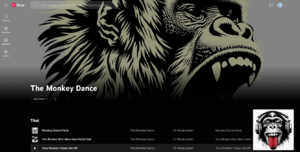
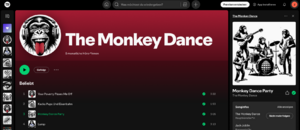
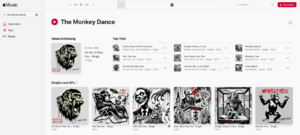
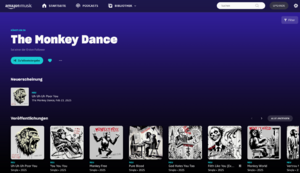
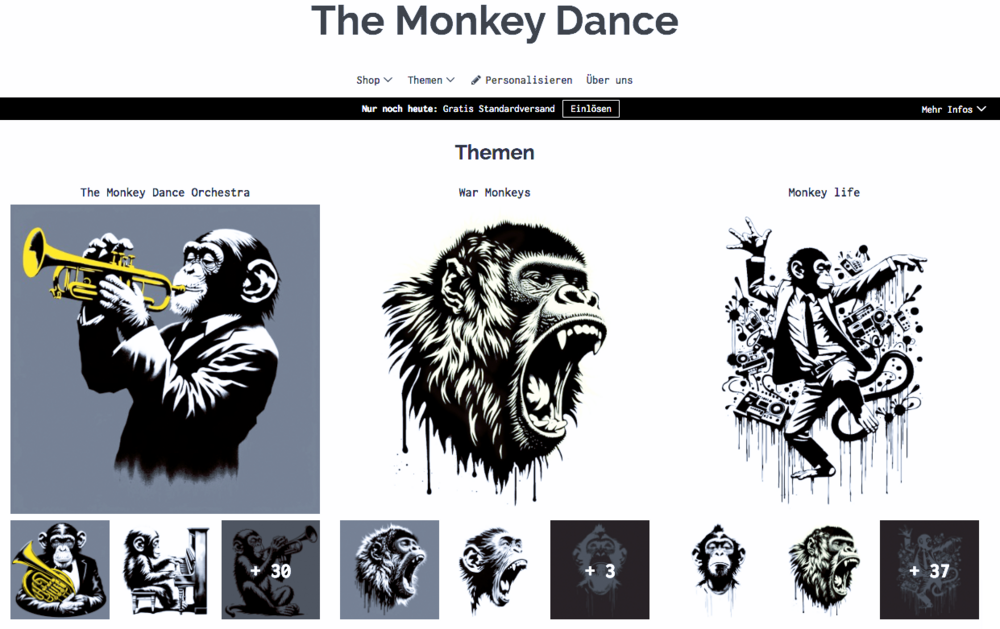
|
|
|

Sponsoren, Förderer, Kooperationspartner

Children for a better world >> Förderung der AI Fair-Image Challenge
Fair-Image wird von CHILDREN JUGEND HILFT! gefördert und ist mit der deutschlandweiten AI Fair-Image Challenge SIEGERPROJEKT 2025. Alle Infos zur Challenge hier >>. Infos zum Camp25 gibt es hier. Wenn auch Ihr Euch ehrenamtlich engagiert und noch finanzielle Unterstützung für Eurer Projekt braucht, dann stellt gerne einen Antrag bei JUGEND HILFT.
